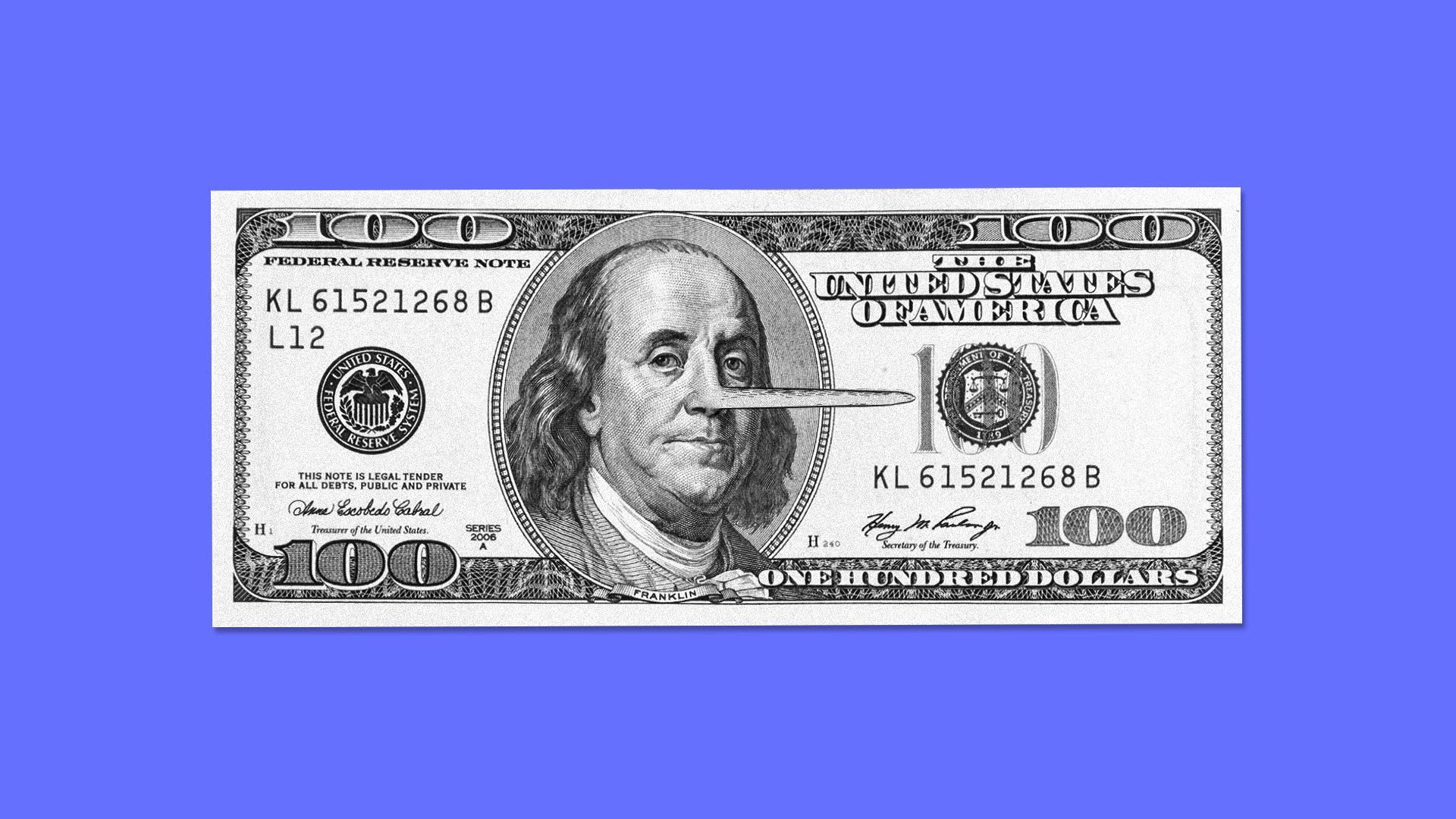Jeffrey Epstein and the utility of fake billions
Add Axios as your preferred source to
see more of our stories on Google.

Illustration: Aïda Amer/Axios
It's easier to turn power into money than it is to turn money into power. That said, if you want power, and even if you want money, it helps a lot if people think you're a billionaire.
Driving the news: Jeffrey Epstein, whose pedophilia is now back in the public eye, was almost invariably described as a billionaire even when there was no evidence that he was worth anywhere near that much money.
- Epstein's conspicuous displays of wealth included owning the largest private residence in New York (9 East 71st, which was originally purchased by one of his clients, Les Wexner) and a $10 million charitable foundation called Gratitude America (which seems to have been funded by another client, Leon Black). They also included private jets and a private island in the Caribbean.
- Epstein's mysterious yet ultra-opulent lifestyle served two purposes. It helped to seduce both men and women — and it gave him an aura of impunity. By creating a bubble of spectacular privilege, he successfully persuaded everybody — not only his friends, but the underage girls he was accused of having sex with — that he was untouchable. Even after the bubble burst, he got away with an astonishingly light punishment for his crimes.
Epstein is far from being the first fake billionaire. Malaysian fraudster Jho Low similarly attempted to buy himself impunity, with some success: He remains at large.
- The power of Elizabeth Holmes, of Theranos fame, resided almost entirely in the fact that people thought she was a billionaire.
- Most intriguingly, press baron Robert Maxwell stole $600 million from his newspapers' pension plans in order to keep his empire together. His daughter Ghislaine went on to become Epstein's closest confidante (and co-defendant).
The bottom line: Some people want to be wealthy; criminals, by contrast, often find it more useful to be perceivedto be wealthy. The genuinely rich tend to care about preserving and growing their wealth. Really big spenders are disproportionately likely to be frauds.
